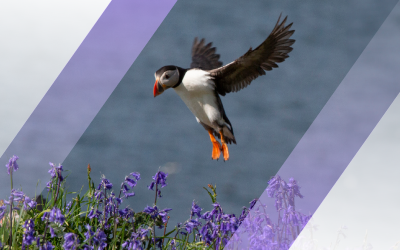Eco-anxiety or climate anxiety, refers to the stresses and fears individuals have about the future of the planet. There can be a real sense of hopelessness at the scale of the issue.
It affects people differently. Many global citizens are facing the devastating impacts of climate change first hand. But even in the UK, where the impact of climate change is not yet as apparent as many places across the world, according to the Office for National Statistics’ November 2021 Opinions and Lifestyle Survey 75% of adults said they were worried about the impact of climate change. Young people globally are experiencing increasing eco-anxiety, as they see the window to fix the planetary emergency closing, but often feel powerless to enact meaningful change. A 2022 Save the Children survey of 3,000 children indicated that around 60% think climate change and inequality are affecting their generation’s mental health in the UK.
Steps you can take
It's generally agreed that feelings of anxiety are a perfectly legitimate response to what the science is telling us about climate change and the impacts we are seeing increasingly reported in the press. So rather than supress feelings of climate anxiety, some mechanisms to cope might include:
Taking action
Acknowledging your feelings of anxiety and channelling those into action is one of the most effective ways you can deal with your fears.
You may wish to join an established community of climate conscious individuals. The shared belonging could be a comfort, and working towards tangible solutions could give a much greater sense of control in overwhelming circumstances.
Even making relatively minor lifestyle changes could help to ease anxiety. For example: eating a more plant-based diet, making energy efficiencies in your home or choosing to buy second-hand instead of new.
Talking about your anxieties
Taking the time to see and speak to friends and family can be a simple way to maintain wellbeing. You may find that others have been struggling with similar feelings.
If you feel that the anxiety is impacting your physical and mental health, please contact your GP or health provider for support.
Seeking out relevant resources
Lawscot Wellbeing is our dedicated online resource that provides help and guidance for members and employers. We are not mental health experts, but we’re proud to work in collaboration with LawCare, SeeMe and other mental health charities.
Lawcare is a mental wellbeing charity offering confidential emotional support to anyone in the legal community and their staff and families. They have produced some tips on dealing with anxiety.
The Climate Psychology Alliance provides support specifically to individuals and groups struggling with “eco-distress” and offer safe spaces to share emotions surrounding the climate crisis.
Headspace also offers some advice on dealing with climate anxiety.
Connecting with nature
Nature is beneficial for our mental health. The Mental Health Foundation’s 2021 report “How connecting with nature benefits our mental health” highlighted that 70% of UK adults surveyed in their YouGov poll agreed that being close to nature improves their mood and 44% said being close to nature makes them less anxious or worried.
Lawcare have created a list of top tips to help you recharge in nature.
Limiting your exposure
In a world of 24 hour news, we are constantly bombarded with images of weather-related disasters and the latest “record-breaking” temperature. It would be easy to become completely overwhelmed by the negative outputs, however, try to avoid “doom scrolling” and seek out some more positive news. Organisations like The Carbon Almanac offer a more uplifting view in the form of its Daily Difference Newsletter.
Top tips

Track positive progress
When it comes to the climate crisis, it can be difficult to avoid doom scrolling. Try and reverse the narrative by subscribing to a regular newsletter like The Daily Difference which connects you to stories of people around the world making a positive impact.

Make a change
Take action to reduce your own carbon footprint by making lifestyle changes like travelling less by air or car, eating a more plant-based diet, and buying less or second-hand. Net Zero Scotland highlights how individual behavioural change can make a difference.


